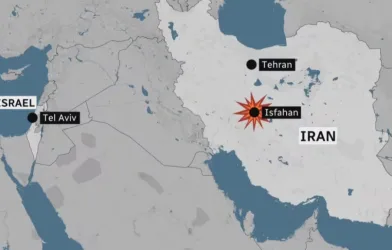 With the notable exception of Westgate, terrorism incidents in Kenya have largely consisted of lobbed grenades and makeshift IEDs. The perpetrators have tended to be sympathetic to al-Shabaab’s ideology but unlikely to have direct ties to the group.
With the notable exception of Westgate, terrorism incidents in Kenya have largely consisted of lobbed grenades and makeshift IEDs. The perpetrators have tended to be sympathetic to al-Shabaab’s ideology but unlikely to have direct ties to the group.
But there are signs that al-Shabaab top brass are beginning to take a more active role in Kenya, where the security climate has rapidly deteriorated over the past year despite the East African country receiving vast intelligence support from American, British and Israeli spy agencies.
In a 23 April suicide attack, two militants detonated a Vehicle-Borne Improvised Explosive Device (VBIED) at a police station in the Nairobi neighbourhood of Pangani, killing two police officers as well as the attackers. Many believe that the station was not the intended target, but that the bombers had been on their way to another site – perhaps a nightclub – when they were pulled over for driving on the wrong side of the road. The blast was atypically powerful, and it is possible that the secondary bomber was wearing a suicide vest to augment the main explosives contained in the vehicle’s boot.
It was the second time in under two months that a sophisticated VBIED – bearing the signs of more direct al-Shabaab involvement – had found its way into a Kenyan police station. On 11 March, an impounded car brought to an Anti-Terror Police Unit station in Mombasa was later found to contain six pipe bombs attached to a mobile phone detonator, containing enough plastic explosives to collapse a multi-storey building.
Ikrima, the Somali-Kenyan militant suspected of organizing the Westgate attack, and Mahad Karate – the head of Amniyaat, al-Shabaab’s intelligence and assassination unit – are believed to be working closely together to plan further attacks in Kenya.
“Given the sophistication of what’s going on in terms of VBIEDs… clearly indicates to me that Amniyaat is now fully in change,” said Rashid Abdi, Somalia analyst for the International Crisis Group.
Abdi argues that their increasing involvement is a product of al-Shabaab dissatisfaction over the commitment level of homegrown non-Somali Kenyan radicals, especially with respect to their willingness to carry out suicide attacks. Abdi has identified a “new, shadowy” Kenyan radical group made up almost exclusively of ethnic Somalis, a group to which the Pangani suicide bombers had belonged. Al-Shabaab, he believes, has been pressuring this network to take the lead on the domestic terror front from other groups – such as the Muslim Youth Centre (MYC)/ al-Hijra – which it judges insufficiently radicalized. Indeed, the fact that the principal Pangani bomber was a Nairobi-born university graduate, whose father had served as a surgeon in the Kenyan Defence Forces, suggests a level of ideological radicalization far exceeding that of the average MYC/al-Hijra cadre.
There may be other such attacks in the works. According to an analyst source, a suicide VBIED attack in early April targeting the National Intelligence Agency (NIS) operations centre at Nairobi’s Nyati House was disrupted only when one of the attackers failed to gain entry and was shot dead outside the gate.
The prospect of a more centrally-planned, “hands on” approach by al-Shabaab in Kenya is worrying, especially in light of the diverse tactics the group has employed to create havoc in Somalia. A proliferation of “complex attacks”– using a combination of gunmen and suicide bombers – strikes on government buildings, and perhaps even targeted assassinations against Kenyan politicians and security forces officials may be in Kenya’s future.
So far, the Kenyan government has had few answers to the mounting threat, other than an indiscriminate crackdown on the Somali community and a bizarre neighbourhood watch-type initiative.
Without a radical rethinking of counter-terrorism policy in the near future, Kenya risks further erosion of state control and lasting damage to its economic prospects.







